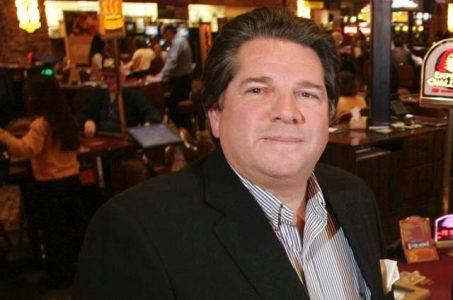Golden Nugget Denies It Will Legally Challenge Richmond In Casino Deal – Update
Posted on: May 7, 2021, 12:01h.
Last updated on: May 7, 2021, 10:59h.
UPDATE: Steven L. Scheinthal, executive vice president and general counsel for Golden Nugget, says the casino company is not threatening any legal action in Virginia. He tells Casino.org, “We submitted a response to an RFP and did not prevail. There were multiple bidders and can be only one winner. We lost and accept that result.”
A casino proposal from Golden Nugget was one of three bids that the City of Richmond, Va., rejected in March.

In late March, Richmond Mayor Levar Stone’s office announced that three of the six casino bids for the city’s lone gaming permit had been rejected. Along with Golden Nugget, pitches from Virginia’s Pamunkey Indian Tribe and Wind Creek Hospitality were no longer being considered.
Richmond’s Department of Economic Development formed an Evaluation Panel to handle each review. The agency said those rejected were done for various reasons, including lack of site control, concerns regarding the likelihood of financial revenue projections, deficiency of the bid, and lack of organizational experience.
Dennis Cotto, who has practiced law in Virginia for three decades and is an expert in procurement laws, argues Golden Nugget’s rejection was wrong. Cotto was a partner in Golden Nugget’s Richmond casino ambitions.
Cotto says Richmond ignored state procurement laws and did not allow the casino company to address or appeal to the city’s concerns in rejecting its application.
Competitive Bidding Rules
Procurement laws as they relate to government biddings are designed to make sure the city gains the best bid for the buck, and the process is free of corruption and arbitrary decision-making. Procurement regulations are additionally bidders’ rights to a fair progression of the government selecting a winning submission.
This is a matter of principle,” Cotto told the Richmond Free Press this week. “There cannot be a procurement which is not subject to procurement rules and procedures.
“I’ve lost bids before, but I’ve always gotten a debriefing. I wasn’t always happy with what I was told, but at least I had my day. This time, I was told there would be no debriefing, and that is a first, in my experience.”
Cotto did produce a letter from the city that explained the Golden Nugget scheme was sacked because the company had not secured land for its targeted casino resort, nor did the company provide the city with an alternate site.
Cotto argues that the city did not require either of those conditions to be met during its request for proposal period.
Steven L. Scheinthal, executive vice president and general counsel for Golden Nugget, tells Casino.org that Mr. Cotto does not speak on Golden Nugget’s behalf and that the company “lost fair and square” in Richmond. Scheinthal adds that Golden Nugget never considered litigation in response to its rejection.
$400M Project Tossed
In February, Golden Nugget presented Richmond with a $400 million blueprint. The casino firm said, if selected by the city and approved next November by local voters in the ballot referendum, it would build a resort with 177 hotel rooms, a casino floor measuring 93,000 square feet, a convention center, a 1,500-seat theater, and six restaurants.
Golden Nugget owns and operates Golden Nugget casinos in Las Vegas, Atlantic City, Lake Charles, La., Biloxi, Ms., and Laughlin, Nv. Billionaire Tilman Fertitta’s Laundry’s hospitality and gaming empire privately holds the Golden Nugget casinos.
As for the three finalists, Richmond selected the newly formed Bally’s Corporation, The Cordish Companies, and its Live! casino brand, and Urban One. The latter is a Black-focused media conglomerate that has no history of running casinos.
However, Urban One has emerged as the odds-on favorite for the Richmond project. Unlike Bally’s and Cordish, which have faced local backlash from the communities where they want to build, numerous organizations have supported Urban One’s plan to build a casino near the Philip Morris tobacco plant along Interstate 95.
Neighborhood criticism for Bally’s plan was so strong that the Evaluation Panel last month formally dismissed the bid. That leaves only Urban One and Cordish.
Related News Articles
Galaxy Gaming Back in Nevada’s Good Graces Without Ousted CEO Saucier at Helm
Most Popular
This Pizza & Wings Costs $653 at Allegiant VIP Box in Vegas!
Sphere Threat Prompts Dolan to End Oak View Agreement
Fairfax County Officials Say No NoVA Casino in Affluent Northern Virginia
Atlantic City Casinos Experience Haunting October as Gaming Win Falls 8.5%
Most Commented
-
VEGAS MYTHS RE-BUSTED: Casinos Pump in Extra Oxygen
— November 15, 2024 — 4 Comments -
VEGAS MYTHS RE-BUSTED: The Final Resting Place of Whiskey Pete
— October 25, 2024 — 3 Comments -
Chukchansi Gold Casino Hit with Protests Against Disenrollment
— October 21, 2024 — 3 Comments
















No comments yet